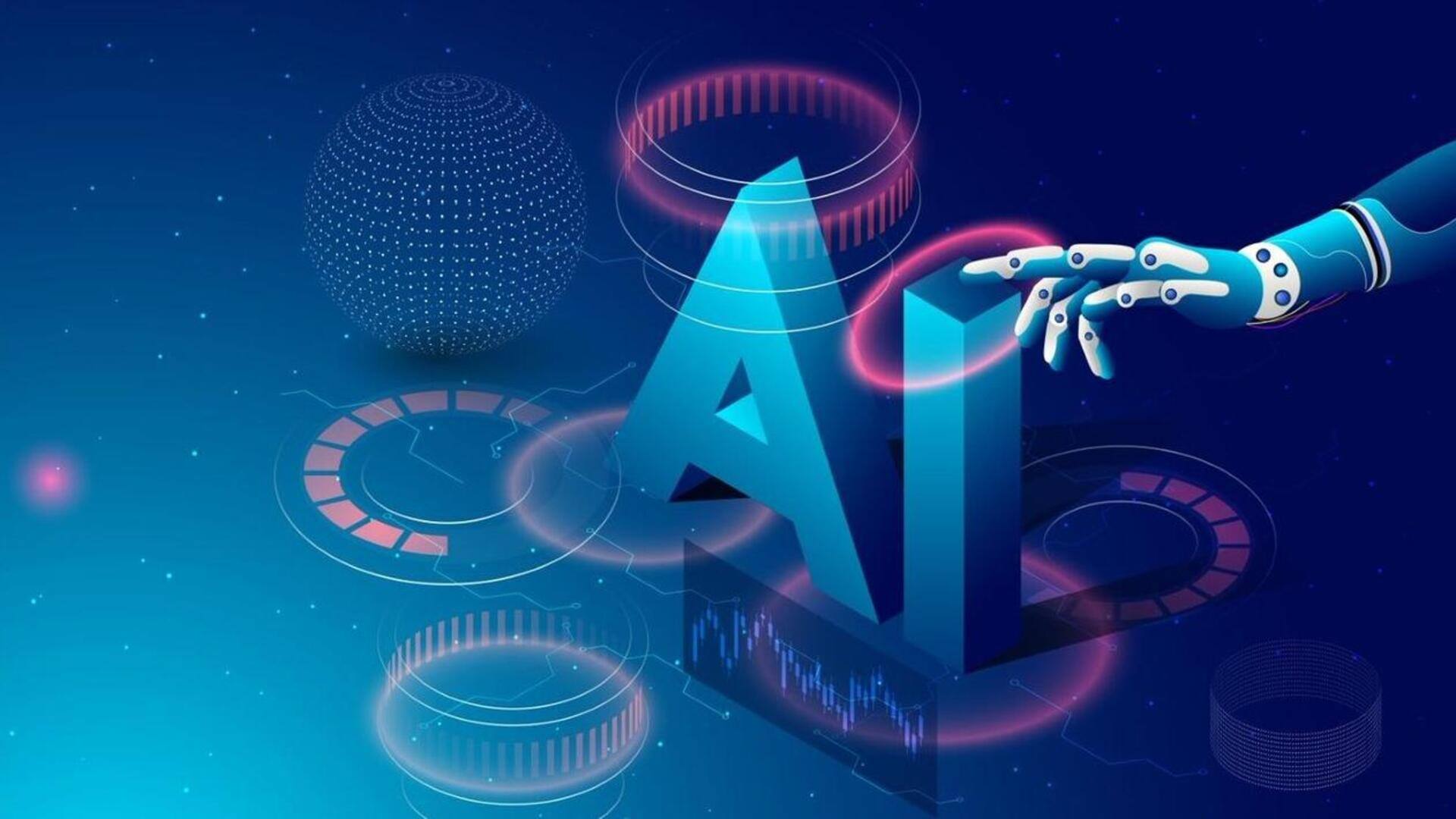
Exploring India's emerging LLM landscape: Krutrim, OpenHathi, BharatGPT and more
What's the story
In his visit to India in June, OpenAI CEO Sam Altman sparked discussions by appearing to downplay the possibility of a groundbreaking Large Language Model (LLM) originating from the country.
Despite Altman's doubts, recent developments show that Indian companies like Ola, Tech Mahindra, and others are actively creating their own LLMs with ambitious goals and unique strengths.
Here we delve into an exploration of the entities involved and their respective endeavors.
More
Companies that entered into the realm of AI
In the dynamic environment of LLMs, Indian companies are poised to secure a significant position amid fierce competition in the digital race.
In contrast to previous uncertainties, the latest developments reveal a positive storyline.
Recently, we have seen models such as Krutrim by Ola co-founder Bhavish Aggarwal, along with Sarvam AI's OpenHathi, BharatGPT by CoRover.ai, Zoho's LLM project, Tech Mahindra's Indus Project, NVIDIA's collaborations with Reliance Industries and Tata Group, AI4Bharat, and Project Vaani.
#1
Ola's Krutrim
Ola entered the LLM arena with its latest AI venture, Krutrim Si Designs, which unveiled a series of multilingual AI models under Krutrim.
The base model of Krutrim is trained on two trillion tokens and distinct datasets, and the larger multi-model, Krutrim Pro, is tailored for advanced problem-solving and task execution.
Krutrim has remarkable multilingual capabilities, comprehending 22 Indian languages and producing outputs in 10 languages.
It can outperform OpenAI's GPT-4 in handling Indic languages.
#2
Sarvam AI's OpenHathi
Earlier this month, the new AI start-up, Sarvam AI, also gained attention by introducing OpenHathi-Hi-v0.1, the inaugural Hindi Language Model (LLM) in the OpenHathi series.
Utilizing Meta AI's Llama2-7B architecture, OpenHathi-Hi-v0.1 is designed to deliver performance comparable to GPT-3.5 specifically for Indic languages.
Sarvam AI has also partnered with KissanAI to fine-tune its base model using conversational data gathered from interactions with farmers in various languages through a GPT-powered bot.
#3
CoRover.ai's BharatGPT
Bengaluru-based CoRover.ai has unveiled BharatGPT, supporting over 12 Indian languages in collaboration with Bhashini, a National Language Translation Mission (NLTM) under the Ministry of Electronics and Information Technology (MeitY).
BharatGPT can help developers and business users swiftly generate multilingual virtual assistants with text and voice capabilities in just seconds.
CoRover supplies AI virtual assistants, encompassing chatbots, voicebots, and videobots, to entities like IRCTC, LIC, IGL, NPCI, and others.
#4
Zoho announced several AI extensions and integrations
In June, Indian SaaS giant Zoho announced plans to build its own LLM, similar to Google's PaLM 2 and OpenAI's GPT.
While the company's in-house LLM is yet to be out, it recently introduced a collection of 13 generative AI extensions and integrations for its applications, all fuelled by ChatGPT.
Zoho is also working on smaller AI models based on 7 billion to 20 billion parameters to solve specific domain problems for customers.
#5
Tech Mahindra's LLM reportedly launching in early 2024
Tech Mahindra CEO CP Gurnani recently announced the Indus Project which aims to establish a foundation model for Indian languages.
The first phase of the project will focus on the Hindi language, covering 40 dialects.
Tech Mahindra is expected to introduce the LLM in the early months of the upcoming year.
#6 & #7
NVIDIA's collaboration with Reliance and Tata Group
Global chip supplier NVIDIA has partnered with Reliance Industries to develop a foundation LLM trained on India's diverse languages and tailored for generative AI applications.
NVIDIA will provide access to its advanced chips and cloud-based AI supercomputing services, with Reliance Jio taking charge of the execution and implementation responsibilities.
The chipmaker has also teamed up with the Tata Group to develop generative AI applications, upskill TCS employees, and assist Tata Communications in constructing AI infrastructure.
#8 & #9
AI4Bharat and Project Vaani
AI4Bharat, backed by Infosys co-founder Nandan Nilekani and based in IIT Madras, is focusing on open-source language AI for Indian languages. Two significant models from the research company are IndicBart and IndicBERT.
Meanwhile, Project Vaani, an initiative by the Indian Institute of Sciences (IISc), AI and Robotics Technology Park (ARTPARK), and Google, aims to build a comprehensive language model by gathering and transcribing open-source anonymized speech data from all districts in India.